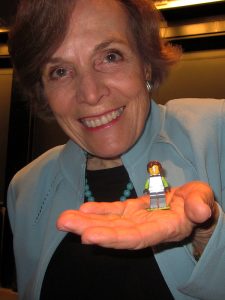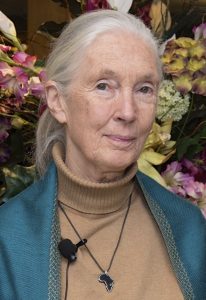I Love Science and Science Fiction
If you checked out my About Me page, you might have noticed that I slipped in a bit about being a scientist.
Maybe you have heard people say things like science is just Latin for knowledge. And in fact, even the Merriam-Webster Dictionary’s first definition of science is “the state of knowing… as distinguished from ignorance.” It’s not until the third definition that we get to something approaching what most of us know, which involves the scientific method.
The first step of the scientific method is to observe the world. At the heart of the matter, a scientist is just someone who observed the world around them, asked a question, and decided to figure out the answer.
Children Are Natural Scientists
When we were children, we were all amazing scientists. Some of us were quickly broken of the habit. Some of us meandered down the path for a while and maybe still revisit it now and again. And others fell in love with discovering knowledge and never stopped looking for answers.
 While my career path as a scientist ended many years ago, I still love the quest for knowledge. I ask questions (a LOT—but that’s a topic for another day…) and constantly search for answers. Having traveled so many roads, there is a lot of random knowledge jangling around in my brain. It helps me piece together a working hypothesis pretty quickly. It also helps send up a red flag when something doesn’t sound quite right.
While my career path as a scientist ended many years ago, I still love the quest for knowledge. I ask questions (a LOT—but that’s a topic for another day…) and constantly search for answers. Having traveled so many roads, there is a lot of random knowledge jangling around in my brain. It helps me piece together a working hypothesis pretty quickly. It also helps send up a red flag when something doesn’t sound quite right.
This is where my scientifically trained mind is a boon for editing. While my grasp of history is not stellar, I still know when a Western is set in the wrong decade because the trains didn’t go that far west yet. I can recommend a new locale or a name change for your main character because there has been no laird in that Scottish castle from the clan you mention. Your character fleeing peril in China made it to Thailand in two hours? Let’s check the possibility of that.
I’m not some sort of genius. I’d say 80% of the things I look up when I think, “Really? Is that true?” actually end up being correct. But the fact that my scientist-nature made me question it is what makes me a great editor.
My observations have also saved authors from plot holes, like serious issues with a character’s timeline or small details that needed changing from an author’s large setting change rippling out to smaller details not fixed by a general Replace All command.
What Kind of Scientist Are You?
So of course my experience in the world of scientists gives me more knowledge in some areas than the layperson. So what is my area of expertise? My undergraduate degree was in biology. That required college-level chemistry and physics knowledge, too. Then my first master’s was in marine studies. I know quite a bit about coral reef ecology. My dissertation was on dolphin behavior.

 Sylvia Earle is my favorite marine scientist. Plus she is so cool, she has her own LEGO minifigure. Jane Goodall is one of the calmest scientists I have ever met. And cool enough to also have a LEGO minifigure!
Sylvia Earle is my favorite marine scientist. Plus she is so cool, she has her own LEGO minifigure. Jane Goodall is one of the calmest scientists I have ever met. And cool enough to also have a LEGO minifigure!That is actually where my path as a scientist came to a tragic end. Between the lead coral guy saying most of the reefs would be dead by 2020 and realizing I am not a writer, nor do I enjoy being in a lab all day, I realized I might need to find a new career path.
Which led me to editing… eventually, at least. And now here I am.
I Love Science—and Science Fiction
But being a scientist doesn’t just help me fact check what I read. My interest in science as an itty-bitty probably led someone to give me my first science fiction book. (Or maybe it was just an inevitability being the daughter of someone with an Analog subscription.) I couldn’t tell you the first one I read.
But I do recall making a beeline for the sci-fi section of the library as a kid. I doubt I knew the difference between sci-fi and fantasy back then, but I sure did love C.S. Lewis and Anne McCaffrey. I went through an Anne Rice phase and another for Asimov and Heinlein, and somehow only recently got into Terry Pratchett.
To this day, I make a beeline for the sci-fi section (because most book stores don’t bother to distinguish the fantasy books). I was rewarded with two more for my Robert Asprin collection just last week! What a great pastime…
Do you love sci-fi? Are you a scientist? What books are you collecting? Tell me your story in the comments below.

Leave a Reply